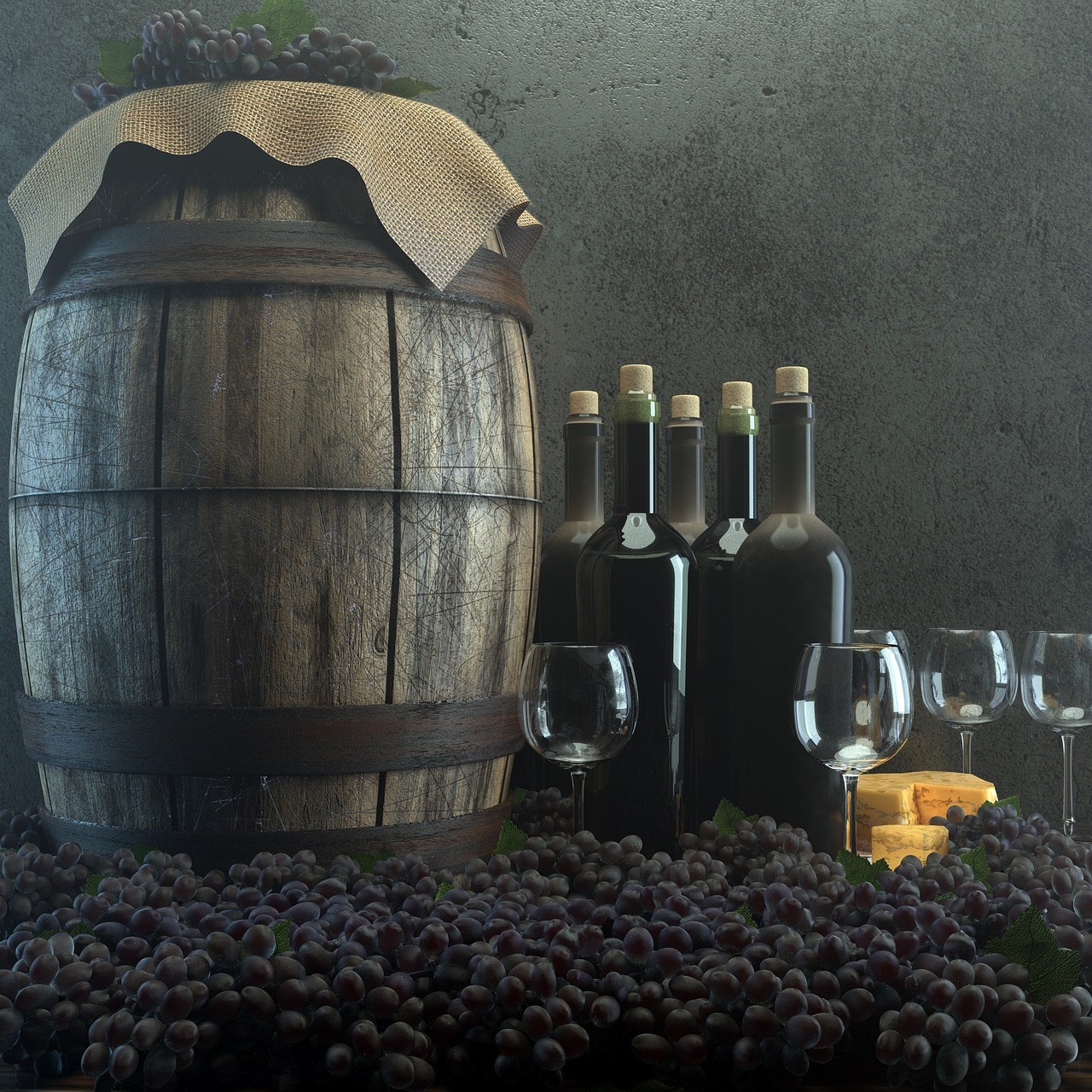- All
- Wisdom
- We Stand on Their Shoulders
- Vocation
- Uncategorized
- Stories Seldom Heard
- Spirituality
- Social Justice
- Prayer
- Peace
- Oneness
- Love
- Letting Go
- Lent
- Joy
- Inspirational Images
- Hope / Healing
- Holy Week
- Gratefulness
- God's Presence
- General News Stories
- Forgiveness
- Finding God
- Faith
- Easter
- Dominican Saints
- Discipleship
- Courage
- Christmas
- Catholic Sisters Week
- Care of the Earth
- Blessing
- Beauty
- Advent
- #justiceOPportunity
The Fourth Gospel: John 2:1 The Feast of Cana
Sr. Patricia Bruno, OP

298th Edition May 2024
 Last weekend I attended a 60th wedding anniversary, family dinners, and outdoor parties that surrounded the main event. Those who attended, traveled great distances to be present. Family and long-time friends enjoyed each other’s company. Stories and photos of the couple’s wedding day were shared.
Last weekend I attended a 60th wedding anniversary, family dinners, and outdoor parties that surrounded the main event. Those who attended, traveled great distances to be present. Family and long-time friends enjoyed each other’s company. Stories and photos of the couple’s wedding day were shared.
Anniversary and wedding customs have changed enormously since Jesus’ day. Yet, the Feast of Cana has a lot to teach us. In Jesus’ day, as in our own, many people came from great distances. Even though they did not have hotels, they often stayed a few days or even a week visiting family, friends, and new relatives. Also, I’m sure those planning the wedding were terrified, as I would be, that the food and drink might not be sufficient. It is also easy to understand why only a few people at the Cana celebration noticed the lack of wine. Amid such a leisurely festive atmosphere with live music, children and adults dancing, and people visiting with long-time friends, the only ones noticing the consumption of food and drink would be those in charge.
So, it’s surprising that Mary, Jesus’ mother, makes the observation. “They have no wine.” Now that’s a serious statement whether then or now. But it was especially disruptive at this wedding because they didn’t have a corner grocery store or a BevMo in the neighborhood. We might wonder why the wine ran out. Was it poor planning? Did more people arrive than were expected? Did the celebration extend beyond the usual number of days? We’ll never know. But for them and us it’s a painful reminder of their economic situation.
The Jewish population was very poor. Roman law kept it that way. It was intentional: a way to control the Jews, the way some of our current laws are designed to perpetuate poverty in our nation. Most Jews had only enough money to make ends meet. To anticipate a family wedding meant that the family would have had to scrimp and save for a very long time. Even though some Jewish weddings might have lasted a week or longer with wine and food that never ran out, those weddings were few and far between.
The fact that the wine ran out might not have been unusual, but the Gospel reminds us that Mary noticed it. She didn’t ignore it. How could she? We don’t know a lot about her, but we can imagine what a caring and insightful woman she must have been. She also knew what it meant to be poor. Remember when she and Joseph presented Jesus in the temple? They offered two turtledoves because they didn’t have the money to buy a lamb or goat as the more affluent Jewish families might have done.
This story of Cana is curious. Yet, it holds many special gifts for us. First, not only do we see Jesus at a jubilant celebration enjoying his family and friends, but we are also invited into a sensitive family conversation. The lack of wine did not seem to catch Jesus’ attention. When Mary says, “They have no wine,” we are privy to her insight and sensitivity for the hosting family. It’s as though we are present at the wedding and allowed to eavesdrop on what could be a tough family conversation. Her comment was not causal. She was urging Jesus to do something about the situation: a situation that he had not noticed. It is also a reminder for us when we are at social gatherings to be attentive to the needs of those who are hosting the event especially when it appears that the refreshments are limited.
Second, Mary says, “They have no wine.” Jesus’ response is, “How does your concern affect me?” Jesus’ words could sound challenging or dismissive. We will never know the tone with which he spoke, but his response sets up a familiar family dynamic, doesn’t it? Discussions, perhaps disagreements, between parents and adult children can strain family relationships. Even today this is true. Working through these situations is not easy. A friend of mine who is a psychologist works mainly with young adults. He says one of their major issues is how they develop healthy relationships with their parents. They need to become independent, take responsibility for their actions, develop their talents and still stay in a loving relationship with their parents. Often this takes many twists and turns before it is accomplished.
Third, the gathering at Cana identifies another common shift in family dynamics. As parents age and their children become adults, parents often ask their adult children for advice. Some of the questions might be major, for example, the sale of the family home, downsizing, or moving to a different area. Other questions might be asking for advice concerning health or financial issues. We hope that our adult children will help us arrive at appropriate solutions even though they might not be as satisfying as Jesus’ eventual response to Mary’s request.
Fourth, even though Mary’s question is not the same as ours, it sounds as though she is expecting an answer. Mary doesn’t speak much in scripture, but what she says is poignant and powerful. She’s strong and wise. She’s a faith-filled woman who has trusted God’s word and knows her son well. Over the years she has observed Jesus’ kindness and compassion towards others. Like other good mothers she trusts her instincts. Mary doesn’t have a solution to the problem, only an observation: “They have no wine.” Surprise! Her observation brought forth much more than even she could have imagined. She didn’t ask for just enough wine to get through the dinner or a few jugs of ordinary house wine, the quality of which doesn’t sound too enticing. Rather she asked a question. She trusted that her son would have a better solution than her wildest hopes. She was not disappointed.
In discussing this passage with a group of parishioners one of the women said, “As I have gotten older, I’ve learned to pray differently. When I was younger, I used to give Jesus a lot of instructions. I used to tell Him what I wanted and how He was to do it. But now my prayer is more like Mary’s. I just place my needs and the world’s needs before God. I ask the Holy Spirit to fill in the blanks as to who, how, and when the answers to my prayer might come about.” This method of prayer is probably true for most of us, isn’t it? Now that we are older, our prayers are often for wisdom to know what to do and the courage and strength to be able to do what we believe is the right, compassionate, and just choice for us to make. We ask for patience and insight. We ask to be led by the Holy Spirit because we know we don’t have all the answers.
Mary’s cry, “They have no wine,” can easily be translated into our concerns as we pray for the needs of the world, our country, and our families. “They have no homeland. They have no protection. They have no hospitals or food. They have no life-sustaining jobs. They have no shelter. They have no equal education or opportunity. They have no security. They have no self-esteem because our society doesn’t value their work or their origins.” Mary’s petition addresses the Body of Christ today. Yet, her words ring with hope.
Mary reminds us to never underestimate the power of God to make us bold disciples with roots firmly planted in the soil of justice and mercy. When we desire to do what Jesus asks of us, God can transform even our weak and insufficient works, like the water at the wedding feast, into excellent wine, bold in flavor and rich in color. In the places that feel empty, God can empower even our small works of mercy to become rich sources of hope for others. It won’t be instantaneous. Rather we, like the servants, will only know in hindsight, that what we have done has been transformed into something more abundant than we could have ever imagined.
We know what Jesus has asked of us. It’s hard to miss it. We hear it every week in the scriptures. Feed the hungry. Clothe the naked. Visit the imprisoned. Reach out to the strangers in our midst. Be in solidarity with those who suffer. Notice those, as Mary did, who have “no wine.” The gospel reminds us to be as bold as Mary was by naming the issues that keep people from wholeness. At a retreat recently, a woman said, “I only have money to send, but….” Before she could end that sentence, another woman interrupted her and said, “Well, send your money now. Don’t wait. People are hungry.”
As we look at the world, we wonder what we can do. How we can be most effective? I would suggest that the first step is to begin with prayer. Prayer and silence are essential. Ask the Holy Spirit for guidance. Wendell Berry, the poet and farmer, says it well.
It may be that when we no longer know what to do
we have come to our real work,
and that when we no longer know which way to go
we have come to our real journey.
The mind that is not baffled is not employed.
The impeded stream is the one that sings.
We might feel as though we are standing in the water of an” impeded stream,” but it’s there in the circling of the water that the Spirit of God will force open the dam or break through the wall of rocks that impede the creative energy of the Spirit: holy energy that will enable us to bring life-giving water to our thirsty world.
